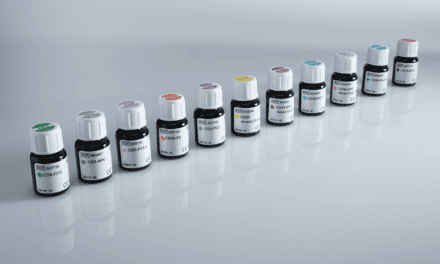Bio-Rad Laboratories Inc, Hercules, Calif, has announced the launch of a new line of isotype-specific secondary antibodies. The recombinant monoclonal antibodies are directed against the three main mouse isotypes—IgG1, IgG2a, and IgG2b—and offer improved signal detection and specificity for use in imaging, enzyme-linked immunosorbent assays (ELISAs), flow cytometry, and Western blotting.
Secondary antibodies are key components of an antibody detection system. The selection of an optimum secondary antibody can improve positive signals and reduce false-positive results or negative staining. Recombinant monoclonal isotype-specific secondary antibodies detect individual isotypes—without species or isotype cross-reactivity—enabling multiple unlabeled mouse monoclonal antibodies of differing isotypes to be used simultaneously. This obviates the need to source secondary antibodies from other species. The isotype-specific antibodies offer an alternative to cross-adsorbed secondary antibodies, which is essential when absolute specificity is required—for instance, during multiplexing or to prevent nonspecific background staining.
Bio-Rad’s recombinant monoclonal antibodies are generated using the Human Combinatorial Antibody Library (HuCAL) and CysDisplay, a proprietary method of phage display with guided selection methods to obtain highly targeted reagents. The recombinant production method also ensures consistent and secure supply.
“Recombinant human monoclonal antibodies are selected against epitopes unique to the isotype and offer significant advantages over traditional secondary antibodies,” says Tracey Long, marketing manager in the life science group of Bio-Rad Laboratories. “Bio-Rad’s recombinant monoclonal isotype-specific antibodies are easy to use and can be substituted for any secondary in the protocol without the need for extra steps.”
For further information, visit Bio-Rad Laboratories.






